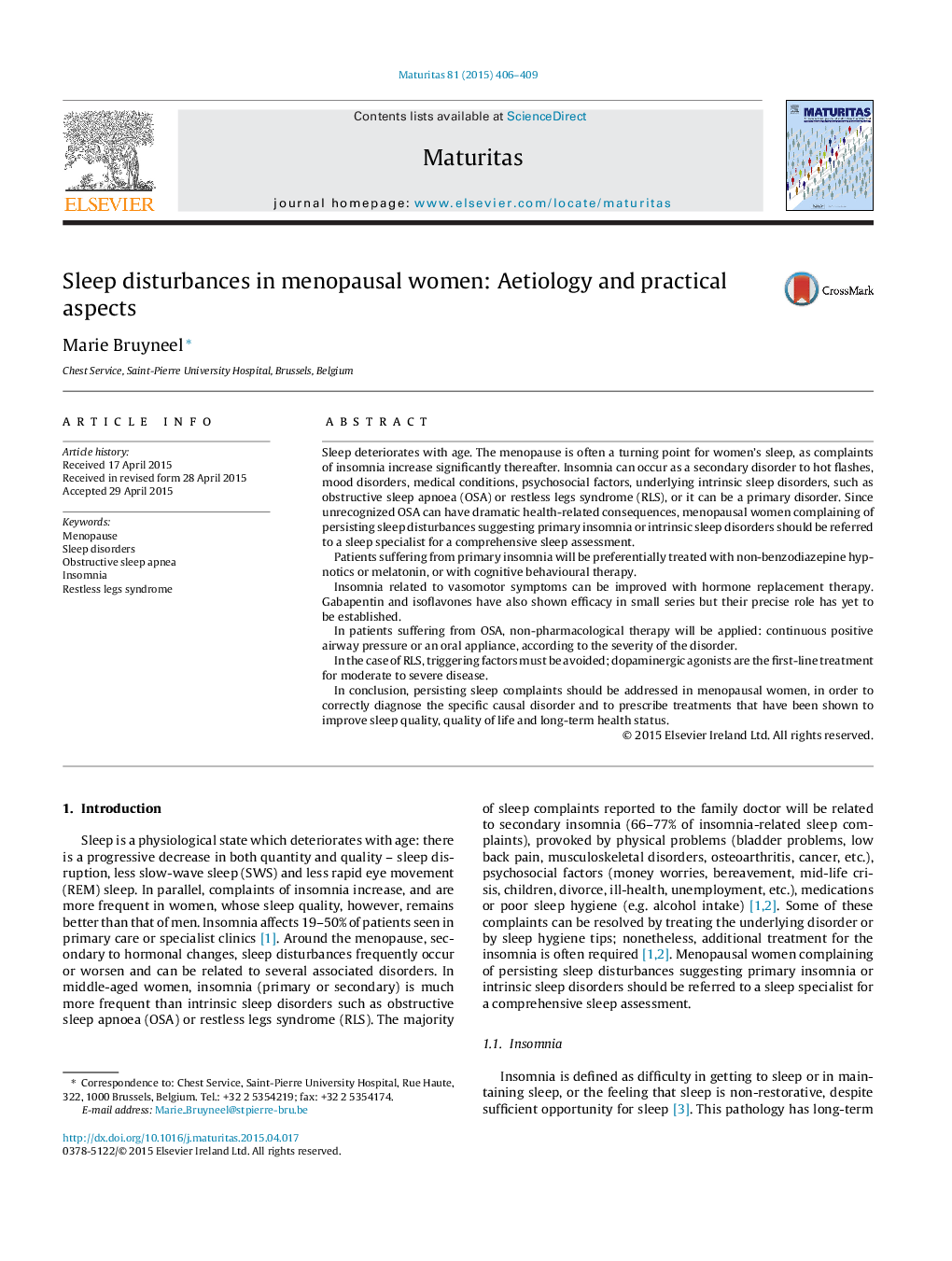| کد مقاله | کد نشریه | سال انتشار | مقاله انگلیسی | نسخه تمام متن |
|---|---|---|---|---|
| 1917122 | 1047875 | 2015 | 4 صفحه PDF | دانلود رایگان |
• Sleep complaints are occurring/increasing in menopausal women (MW).
• Aetiologic factors include insomnia, OSA and restless legs syndrome.
• OSA prevalence is increasing in MW due to weight gain and hormonal changes must be recognized since consequences of untreated OSA are dramatic.
• There are effective available treatments regardless the aetiology of sleep problems.
Sleep deteriorates with age. The menopause is often a turning point for women's sleep, as complaints of insomnia increase significantly thereafter. Insomnia can occur as a secondary disorder to hot flashes, mood disorders, medical conditions, psychosocial factors, underlying intrinsic sleep disorders, such as obstructive sleep apnoea (OSA) or restless legs syndrome (RLS), or it can be a primary disorder. Since unrecognized OSA can have dramatic health-related consequences, menopausal women complaining of persisting sleep disturbances suggesting primary insomnia or intrinsic sleep disorders should be referred to a sleep specialist for a comprehensive sleep assessment.Patients suffering from primary insomnia will be preferentially treated with non-benzodiazepine hypnotics or melatonin, or with cognitive behavioural therapy.Insomnia related to vasomotor symptoms can be improved with hormone replacement therapy. Gabapentin and isoflavones have also shown efficacy in small series but their precise role has yet to be established.In patients suffering from OSA, non-pharmacological therapy will be applied: continuous positive airway pressure or an oral appliance, according to the severity of the disorder.In the case of RLS, triggering factors must be avoided; dopaminergic agonists are the first-line treatment for moderate to severe disease.In conclusion, persisting sleep complaints should be addressed in menopausal women, in order to correctly diagnose the specific causal disorder and to prescribe treatments that have been shown to improve sleep quality, quality of life and long-term health status.
Journal: Maturitas - Volume 81, Issue 3, July 2015, Pages 406–409
